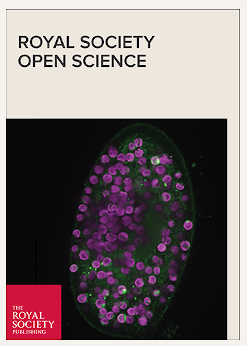
Characterization of the RNA-interference pathway as a tool for reverse genetic analysis in the nascent phototrophic endosymbiosis, Paramecium bursaria
Jenkins et. al. (2021). Royal Society Open Science. 10.1098/rsos.210140
"The aim of our research is to understand how eukaryotic cellular complexity –which encompasses plants, animals, fungi and a vast diversity of microbial forms called protists– arose and diversified. To do this, we use phylogenomic approaches combined with cell and molecular experiments. Our team currently work on three major themes."

Jenkins et. al. (2021). Royal Society Open Science. 10.1098/rsos.210140
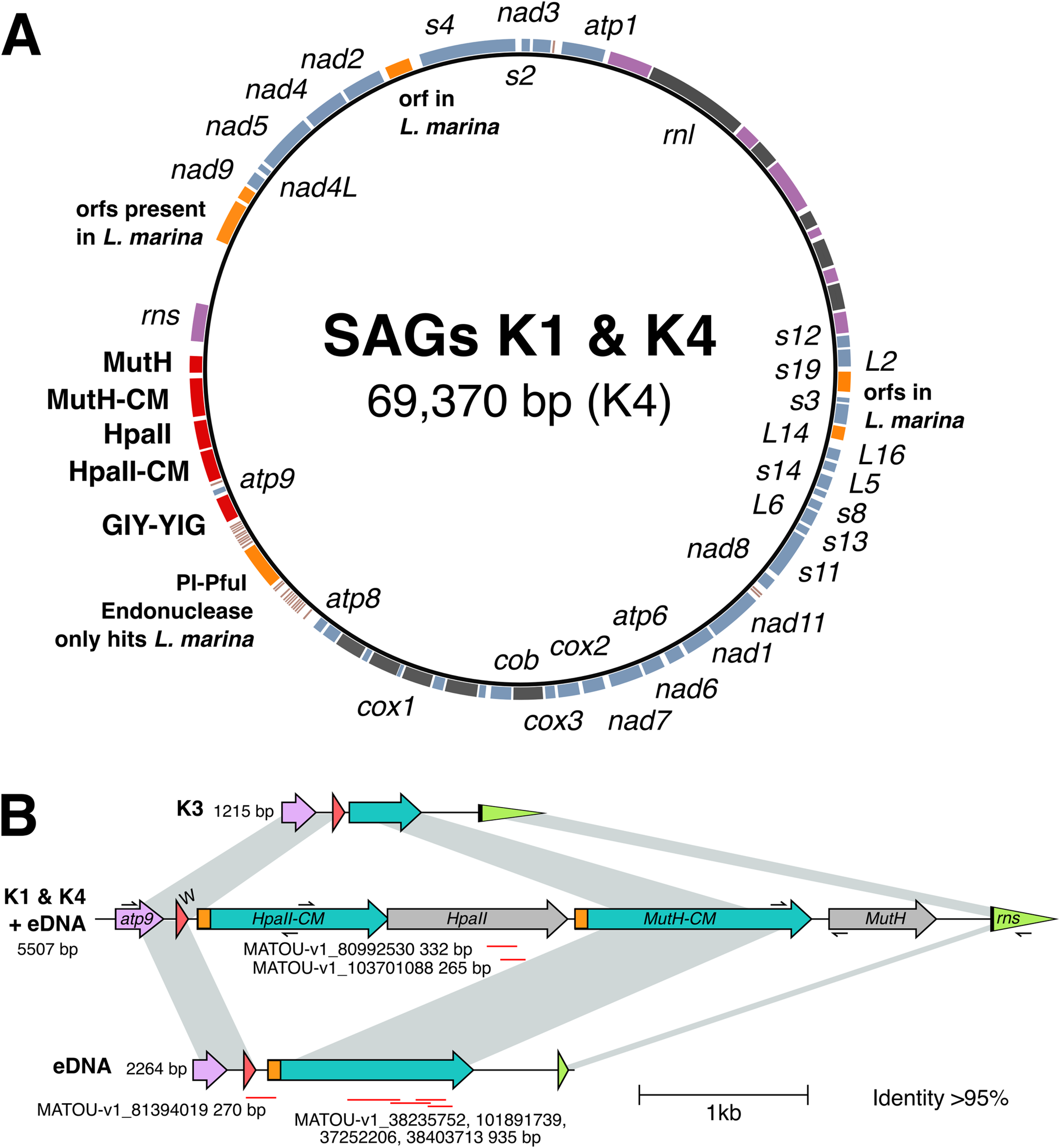
Milner et. al. (2021). PLoS Biology. 10.1371/journal.pbio.3001126
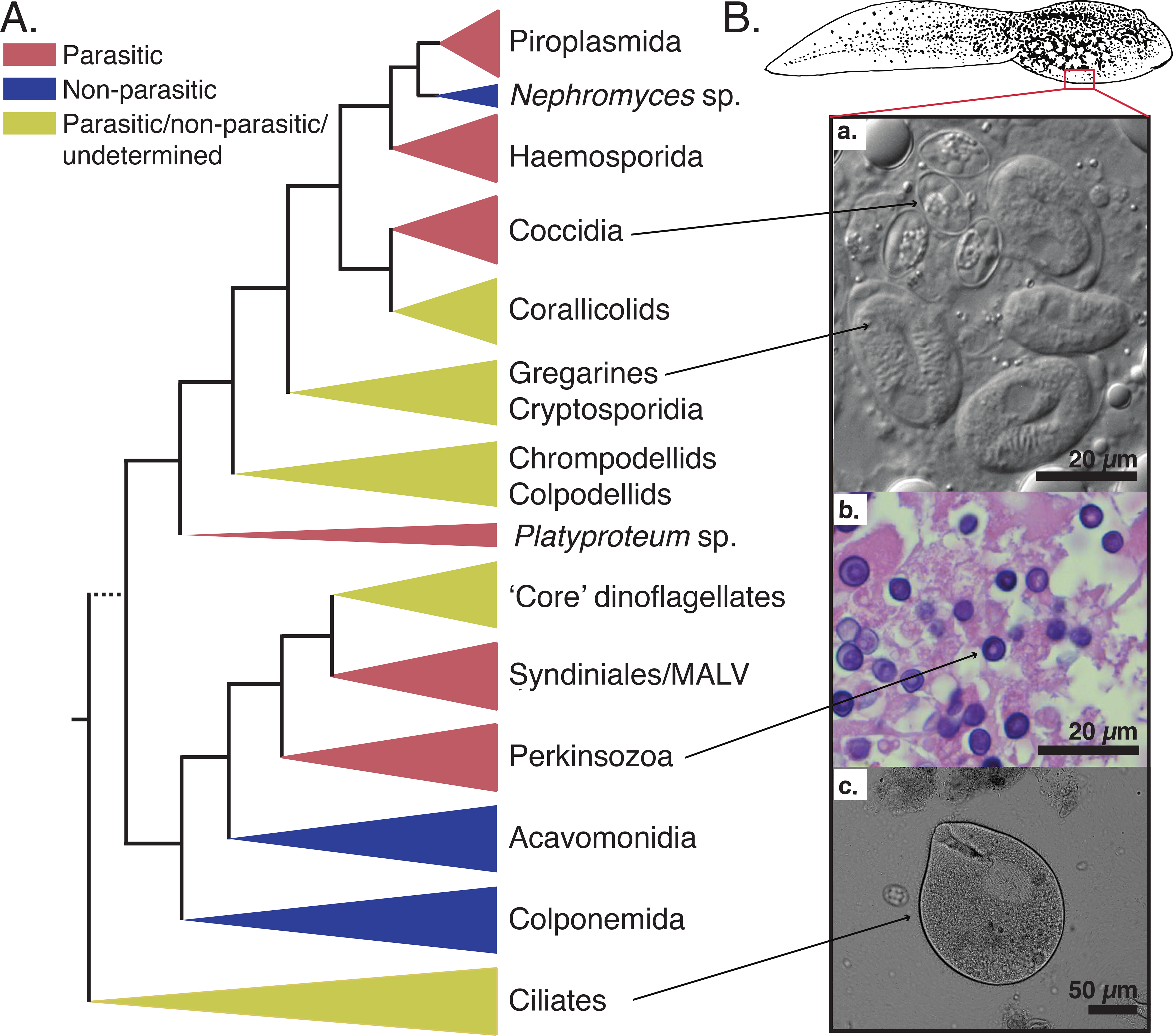
Chambouvet et. al. (2020). PLoS Pathogens. 10.1371/journal.ppat.1008107
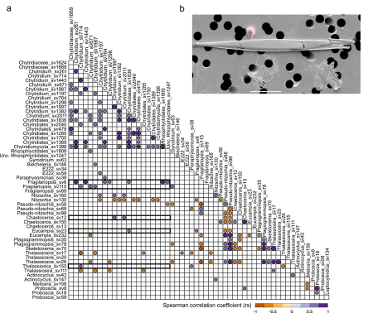
Kilias et. al. (2020). Communications Biology. 10.1038/s42003-020-0891-7
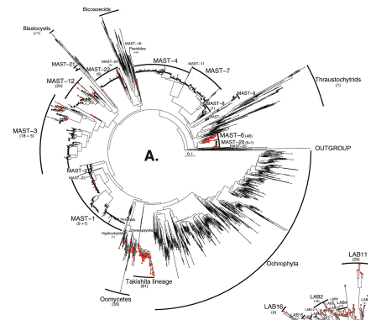
Rodríguez-Martínez et. al. (2020). ISME. 10.1038/s41396-019-0581-y
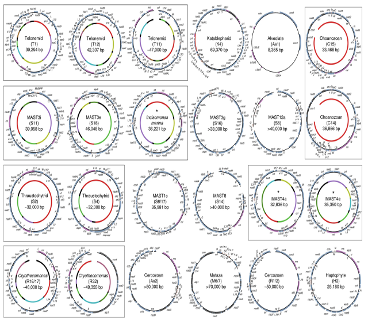
Wideman et. al. (2020). Nature Microbiology. 10.1038/s41564-019-0605-4
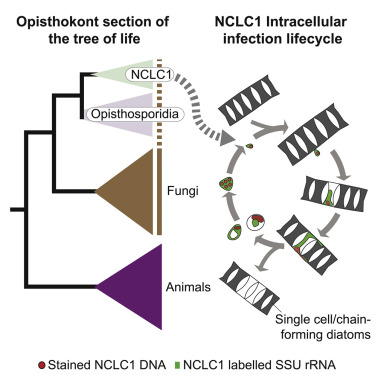
Chambouvet et. al. (2019). Current Biology. 10.1016/j.cub.2019.09.074
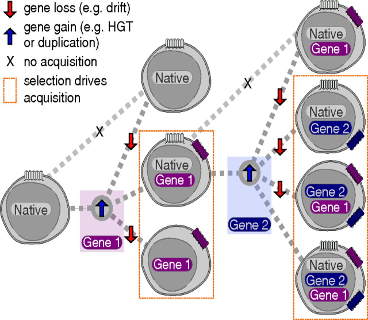
Milner et. al. (2019). PNAS. 10.1073/pnas.1815994116
Click on a person in the image below to find out more!

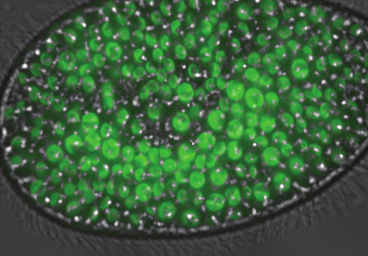
This project will identify, for the first time, the gene functions that enable one cell to incubate another within to form a stable endosymbiotic interaction.
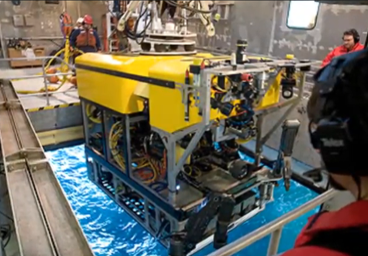
Microbial diversity in the oceans and other aquatic ecosystems is vast and drives numerous important ecosystem functions and biogeochemical cycles.
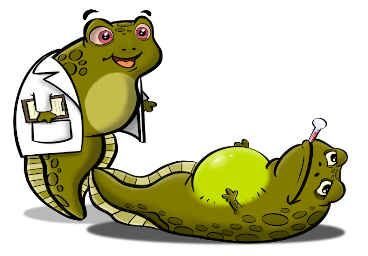
The aim of our work in this area is to understand the role of the protist in disease and understand its spread across the globe.
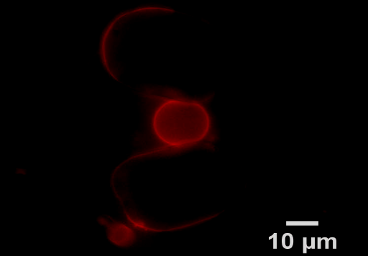
Understanding the evolution of membrane traits and the function of distinct classes of membrane proteins.

Blastocladiomycota possess a unique eye-spot organelle arranged next to the chytrid zoospore flagellum and composed of a unique rhodopsin gene fusion protein and lipid filled vesicles.
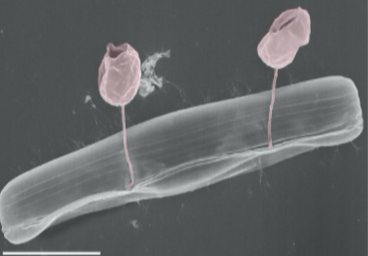
Understanding the phylogenetic diversity of the Fungi and their close relatives and how they ecologically interact with others in aquatic environments.
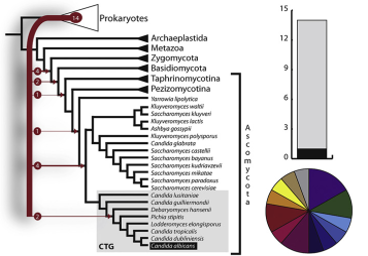
Understanding the phylogenetic diversity of the Fungi and their close relatives and how they ecologically interact with others in aquatic environments.

We are preparing to sequence every protist sampled in the UK and maintained in a UK culture collection.
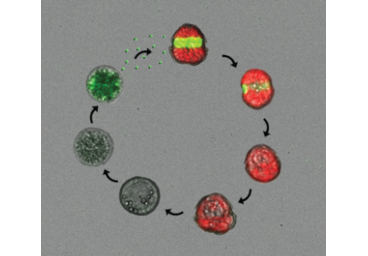
The aim of our project is to study how protist parasites belonging to Perkinsea interact with their blooming dinoflagellates hosts.
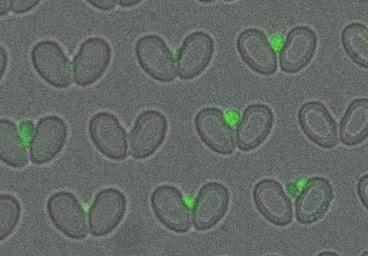
Genetic and microfluidics for understanding the basis of symbiosis in Chlorella.
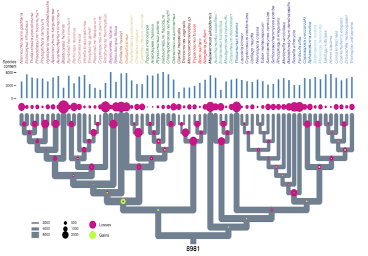
An international consortium to curate and expand LECA-related data as a comparative genomics resource.